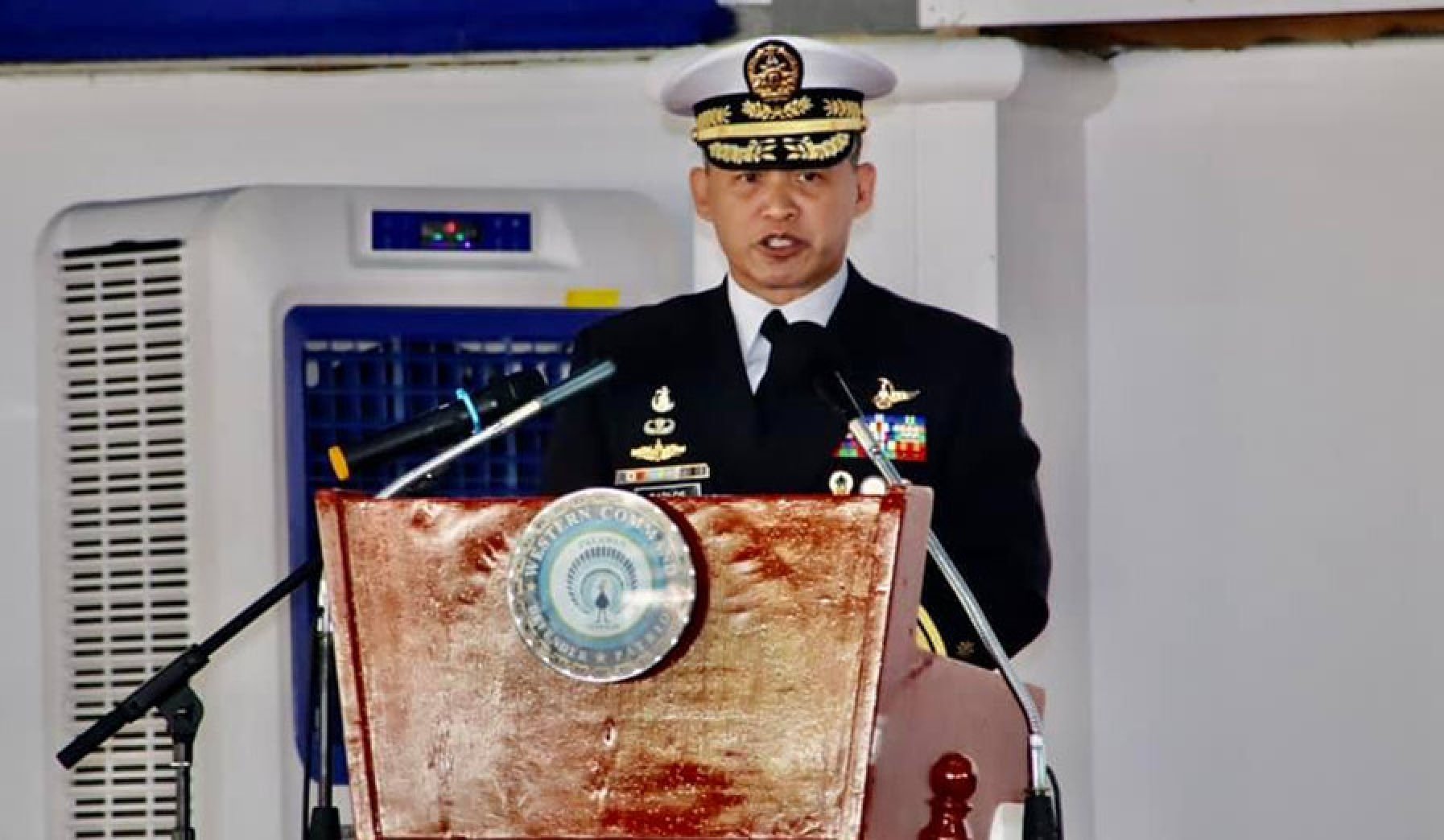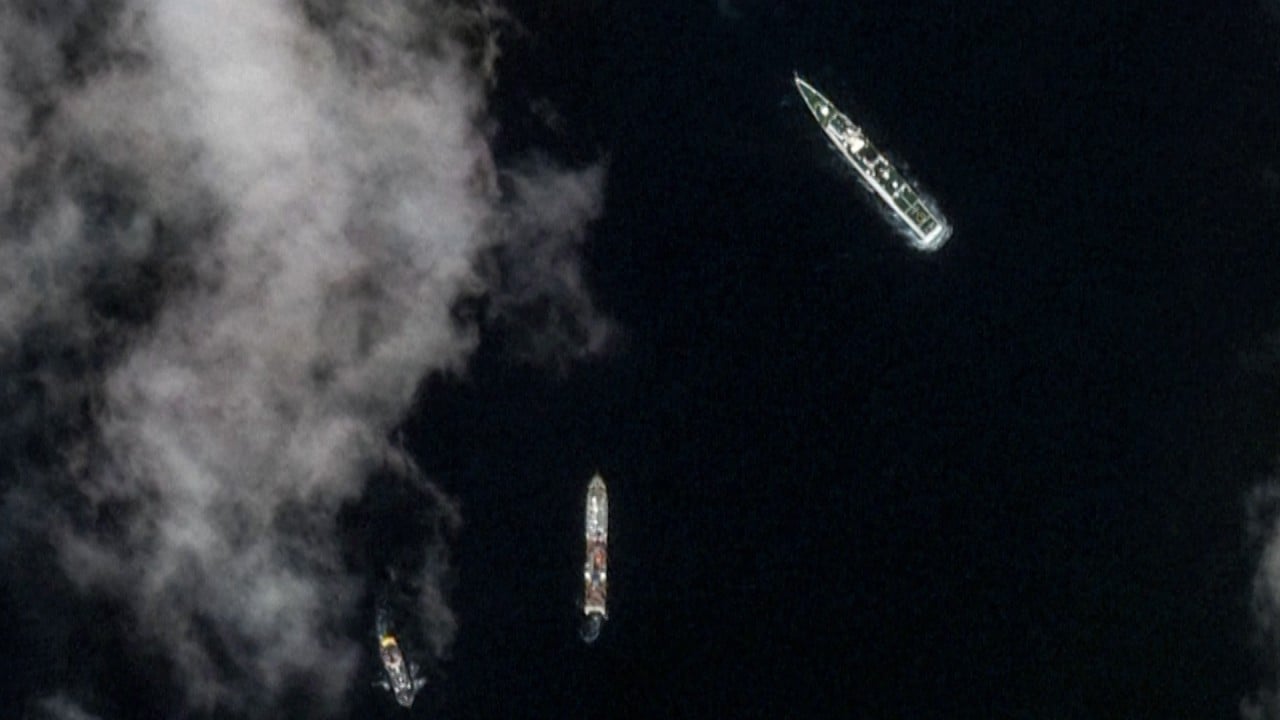Beijing’s threat to publish recordings of a phone conversation with a Philippine military official about a deal over disputed territory in the South China Sea is an unusual expression of frustration and could add to frictions with Manila, observers say.
According to a Bloomberg report on Monday, Beijing said that it would soon release the audio of a purported phone call with Vice Admiral Alberto Carlos, head of the Philippine military’s Western Command which oversees Manila’s defence of the disputed Spratly Islands.
According to a transcript of the conversation released by Chinese officials, Carlos agreed to a “new model” in handling resupply missions to the Philippine-occupied Second Thomas Shoal in the island chain.
It did not say to whom Carlos was speaking during the call.
But in a statement published late Wednesday night, the Philippine Armed Forces said the purported recording was “a malign influence effort from the Chinese Communist Party”.
“Transcripts can easily be fabricated, and audio recordings can be manufactured by using deep fakes. These reports only [aim] to serve as a distraction from the China Coast Guard’s ongoing aggressive behaviour in the West Philippine Sea,” Armed Forces of the Philippines chief of staff Romeo Brawner said.

It is unusual for China to reveal the content of diplomatic talks, particularly closed-door discussions.
Ding Duo, an associate research fellow at the National Institute for South China Sea Studies, a think tank based in the southern province of Hainan, said the revelations indicated that Beijing was deeply frustrated.
“To China, the Philippines is breaking its word, and that has badly damaged the political trust between the two sides,” Ding said.
“It appears that the Philippines has no willingness to work together with China to manage the disputes at the sea.
“That has significantly damaged ties between the two countries.”
He said some diplomatic channels remained open between the two countries but high-level interactions had largely been on hold since tensions flared last year. “I don’t think there’s any political trust between the two countries at all.”
Hu Bo, director of Beijing-based think tank South China Sea Probing Initiative, agreed.
“The Philippines has denied any agreements with China, including those made by the previous governments, and that has forced China to do something,” Hu said.
Collin Koh, a senior fellow at the S. Rajaratnam School of International Studies in Singapore, said the threat could be part of Beijing’s strategy to counter Manila’s “assertive transparency” tactics to publicise its maritime incidents with China at the sea.
“That is effective and has put China on the back foot, so Beijing needs to sort of wrestle back the initiative,” he said.
Confrontations between Beijing and Manila have intensified over the past year as Chinese and the Philippine ships have engaged in tense stand-offs in the disputed waters in the South China Sea.
Following the clashes near the disputed Scarborough Shoal on April 30, Manila accused Beijing of “dangerous manoeuvres and obstruction” and of reinstalling a barrier near the outcrop.
Beijing, meanwhile, accused the Philippines of “crossing a red line”, citing a 2016 “gentleman’s agreement” with then president Rodrigo Duterte under which Philippine fishermen could fish near the shoal but should never enter the lagoon.
On Saturday, the Chinese embassy again released some details of the “new model” involving resupply operation protocols in the disputed Second Thomas Shoal.
Chinese officials also cited a news report in 2013, when then defence secretary Voltaire Gazmin told then Chinese ambassador Ma Keqing that the Philippines “will not violate the agreement not to construct new structures”, according to news portal Inquirer.net.
But Koh, in Singapore, doubted if Beijing’s strategy would work. He said Beijing had been on the defensive and it was not clear there was an independent way to verify any such recording or transcript.
The Philippines has also argued that the audio recording violated its Anti-Wire Tapping Law, and that any such agreements would need to go through a legal process.
“Whereas in China, it is pretty normative to accept such an agreement, and maybe that explains [it],” Koh said.



